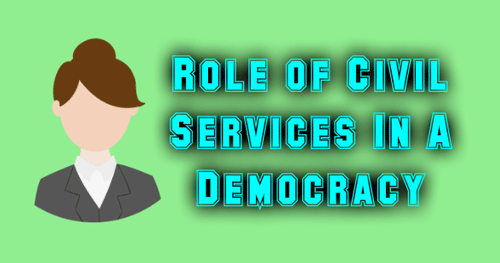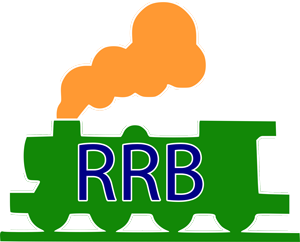Hey guys… welcome to our website. Do you want to become a civil servant? Looking for roles of civil services in democracy? If you are searching for these terms then this article helps you. Here in this post, we are providing details on roles of civil services in a democracy.
In a democratic country India according to democracy citizens of India confers the power. Many feel that civil services fulfil the will of parliament but true fact is that civil services will have a powerful impact over the decision of cabinet. The duty of the parliament is to makes the rules and passes the bills and it’s the responsibility of civil services to implement them on the ground level.

In India there are 3 pillars that maintain the functionality of the state. The 3 pillars are Executive, Legislative and Judiciary. The civil services in India and ministers and cabinet come under part of executive. The ministers are not permanent but civil services’ workers are permanent and hence they have a stronger power on the society.
Importance of Civil Services
In Indian administrative system civil services are one of the important component. Indian Civil services are categorized as IAS and IFS. The duty of the civil servants is to choose the representatives to develop policies in society. The most important factor of civil services is that they handle the most difficult conditions in society and try to clear them before they get out of control.
India is a country with many different religions and cultures. So there may raise conflicts between different religions, then it’s the civil services which handle and stop it. In India there are constitutional fairness and its operations are depending on Legislature, Executive, Judiciary, and free press, each of them work for the democracy.
In India civil services works as a subdivision of government which is usually grouped with the executive, and without which government cannot function. The civil services are associated with some works like give advice to the executive, assist the political executive to implement policy.
If we compare the politicians, especially ministers with civil service workers then we will find that on grounds the work of a civil service worker is as important as it’s of an elected representative.
Historical Review of Civil Services
As for the society both political and judicial bodies are important but we cannot think of a society without civil services. In India civil services is a government official body which is neither political nor judicial. The term civil services and public administration system are not new in India, they are presented in India since ancient time.
There was a belief of historians that public administration was present during Mauryan kingdom. During the period of Mauryan kingdom the adhyakshans and rajukas work as civil servants. There are also civil services in the rule of kautilya’s arthasastra. Later during the Moghul period the civil servants became state servants. After Moghul kingdom East India Company came into rule and also follows the same module of civil services but the duties and responsibilities have changed.
During the rule of East India Company the civil servants had to look after financial matters. During modern time in India in 1800AD, Lord Wellesley was the 1st person who felt the need of qualifies public administrations.
In India the present public administration is influenced by British’s public administration system. During the period of Britisher’s they established the civil services with the aim to strength the British administration in India but there system worked for the development of India. After India got independence in the constitution more rights were given to civil services.
In Indian constitution some powers were given to the civil services. They are as follows:
- In India there are 3 civil services IAS, IPS and IFS. These 3 has been constituted as All India Services.
- According to Articles 53 and 154, the executive power of the Union and the States vests in the President or Governor directly or through officers subordinate to him.
- According to Article 315, there shall be a Public Service Commission for the Union and a Public Service Commission for each State.
- Article 320 describes the functions of Public Service Commissions. According to this article, it shall be the duty of the Union and the State Public Service Commissions to conduct examinations for appointments to the services of the Union and the services of the State respectively.
Major Responsibilities of Civil Servants
- The main duty of the civil servants is to serve the government. The government introduces rules and the civil servants implement them in the society.
- The responsibility of civil servants is to maintain law and order in difficult situations.
- The civil servants should submit a report of their works in their designated area when the elected representative asks. Based on the reports issued by civil servants the government takes some steps.
- The duty of civil servants is also responsible to public interest in maintaining the law and ensure that proper procedures are followed.
Major Criticisms of Indian Civil Services
Following the above section we understood that civil services are important for the development of society and for the implementation of government policies. But there are some criticisms attached to civil services
- The issue of outdated rules stop the civil servants to give their best performance
- The civil servants cannot do their best because of too much political interface.
- To know the needs of the people the people civil servants must be more open to the common people.
So this is all about role of civil services in a democracy. If you have any queries regarding this post, please do comment in below comment section we will reply as soon as possible. Stay connects with our site for regular updates. Thank you for visiting our site team @ www.rrbvacancies.com
